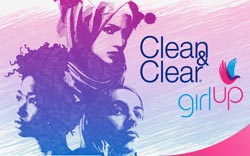packaged goods
Clean & Clear Goes Social With The Sims
- by Karl Greenberg , August 14, 2012
 Johnson & Johnson Skincare's acne product Clean & Clear is running a program on EA's Facebook game "The Sims Social." The program uses
value-exchange engagement media to talk about the brand's Advantage line of acne products. In exchange for watching a video about the product, players get a Clean & Clear "potion” that
unlocks play benefits, like increased in-game currency.
Johnson & Johnson Skincare's acne product Clean & Clear is running a program on EA's Facebook game "The Sims Social." The program uses
value-exchange engagement media to talk about the brand's Advantage line of acne products. In exchange for watching a video about the product, players get a Clean & Clear "potion” that
unlocks play benefits, like increased in-game currency.
The joint program, which runs up to September, is timed with the back-to-school season. The company says female teen gamers are a big chunk of The Sims Social players and that females outnumber males in web-based gaming.
A company source says the program is contiguous with a larger seasonal campaign that includes activation and promotions with retailers like Walmart and Target.
advertisement
advertisement
The Walmart deal involves a special offer with Teen Vogue, wherein purchase of any two of the Clean & Clear products at the super store through the month gets consumers a back-to-school from the teen publication. At Target, when you buy any two Clean & Clear products you can receive a special edition "Girl Up" tote bag, which supports the United Nations Foundation program by that name, which aims to improve the lives of young women in impoverished countries.
A new study from Mintel says innovation in the segment drives sales and share. The Chicago-based firm reports the acne treatment segment has had uneven sales between 2006 and estimated 2011, but that sales will probably grow through 2016 with new formulations.
The demand is strong, as Mintel points out that one-third of respondents to an Experian Simmons report using facial skincare products to treat acne.
The top-selling acne treatment is Johnson & Johnson's other competitor in the skin-care sandbox, Neutrogena Oil Free Acne Wash, which grew 2.3% between Feb. 20, 2011 and Feb. 19, 2012, for $49 million. Neutrogena Clear Pore also grew during this time and helped keep J&J in the black. The company saw 2.3% growth between Feb. 20, 2011, and Feb. 19, 2012, during which both Reckitt Benckiser and University Medical declined by 1.9% and 4.9%, respectively, per Mintel.
Unilever, meanwhile, increased sales with growth from St. Ives and Noxzema, using different marketing strategies for each brand: St. Ives highlights its botanical ingredients, while Noxzema focuses on exfoliation and skin regeneration. And private label grew more than any leading national brand over the review period at 7.9%, and with sales of $29 million eclipsed both University Medical and Unilever.


